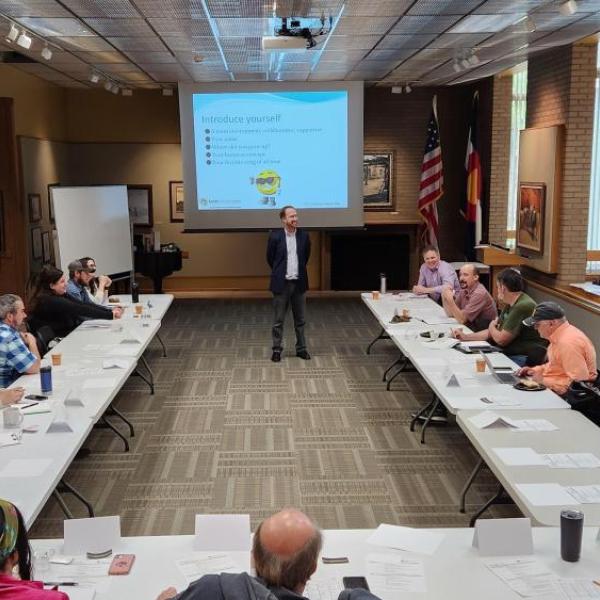
Dear Latrice,
We also love...
Antonio | Clifton, CO
That’s why we’re developing programs to help reduce caretaker burnout.
Campus Location

“We tested the pilot program in 2021 with promising results,” said study co-author Tyra Fainstad, MD, associate professor at the University of Colorado Anschutz School of Medicine. “We then expanded it to 26 institutions across 19 states, involving 1,017 participants. We saw significant improvements in every well-being outcome, including all aspects of burnout.”
Burnout in healthcare, particularly among women, is a severe issue. Last year, the U.S. Surgeon General called it a "crisis" requiring "bold, fundamental change," but effective, scalable solutions have been scarce. Women face higher burnout rates due to workplace bias, pay disparities, and additional home management responsibilities.
Fainstad and Adrienne Mann, MD, faculty in the CU Department of Medicine, developed the Better Together Physician Coaching Program to address this issue. Their web-based program, now available nationwide, aims to reduce burnout through online group coaching.
While the pilot program improved feelings of imposter syndrome and self-compassion, the national study showed substantial reductions in professional distress, including burnout and moral injury, and increased well-being, such as self-compassion and flourishing.
“Physician trainees who received four months of online group coaching experienced notable reductions in burnout, moral injury, and imposter syndrome, and improvements in self-compassion and flourishing,” Mann said.
Better Together, run by the University of Colorado, is available to any healthcare institution or residency program seeking to enhance clinician wellbeing. It offers two weekly videoconferencing coaching calls, live coaching sessions, anonymously written coaching, and self-study sessions on topics like goal setting and imposter syndrome.
The program’s effectiveness is measured using the Maslach Burnout Inventory (MBI), which includes emotional exhaustion, depersonalization, and professional accomplishment. Participants who engaged in the training showed reduced emotional exhaustion compared to those who did not.
Unique Approach
Fainstad highlighted the program’s effectiveness, noting, “Its multi-modal nature and group interaction enhance its impact.” Mann added that seeing others’ experiences during coaching fosters empathy and self-compassion. “Participants relate to others' stories, which helps them practice compassion for themselves.”
This study supports group coaching as a solution to burnout. “We’re proving that group coaching works,” said Fainstad. Mann emphasized the need for accessible programs, stating, “This evidence-based program has no downsides and supports all aspects of burnout.”

